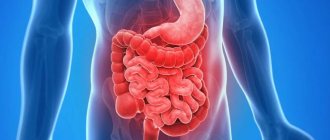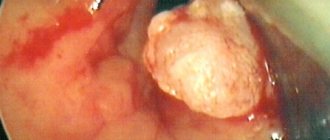The feeling of sucking in the stomach often occurs during severe hunger. It especially often accompanies people who are radically losing weight and eating poorly. But this same symptom can also be a sign of stomach disease. For example, epigastric burning may indicate peptic ulcer disease or gastroesophageal reflux disease.
A good way to reduce the sucking feeling in your stomach is to eat small meals regularly, but this will only help if your stomach is healthy.
Why does a sucking feeling occur in the stomach? Why is this dangerous?
The content of the article
A sucking and burning sensation in the stomach is a very unpleasant condition that can be a sign of a disease of the gastrointestinal tract and is often associated with fasting and an empty stomach. It occurs when digestive juices secreted by the cells of the stomach begin to irritate the delicate wall of the organ.
Under normal conditions, digestive juice is used to digest a portion of food. If there is no food or the walls of the stomach are thinned or covered with ulcers, gastric juice eats away the mucous membrane. Approximately the same situation is observed with a high concentration of acid in the stomach or with an excessive amount of it.
Feelings of hunger and stomach choke are a problem for people who are radically losing weight by trying to reduce their calorie intake by fasting. This practice, with an inadequate diet, can lead to inflammation of the gastric mucosa, belching and bloating.
Bloating
Sucking in the stomach is often accompanied by a burning sensation, pain in the lower abdomen and behind the sternum. These are signs of gastric or esophageal reflux disease, in which acidic contents move up the esophagus instead of down. Reflux disease is also indicated by chest discomfort.
With such symptoms, it is very important to undergo a correct diagnosis and quickly implement a therapeutic diet in order to be able to get rid of the unpleasant problem before it causes irreparable damage to the gastrointestinal tract.
Features of manifestation
Nerve endings located in the same area as the stomach are sensitive to hormones produced as a result of stressful situations, which are the body’s reaction to fear, anxiety or danger. As a result, the nerve endings of the stomach are excited, provoking a feeling of hunger.
In addition to this reason, the sucking sensation in the pit of the stomach is explained by human physiology. This is how the body shows a feeling of hunger, reminds that the stomach is empty, the digestive system, under the influence of secreted enzymes, is ready to perform its functions, but there is nothing to digest.
This situation is fraught with the fact that enzymes direct their activity to the walls of the stomach, which can cause pathological changes in its mucous membrane.
Pathologies that contribute to the sensation
In addition to nervous tension and a simple reminder of the need to eat, the stomach gives similar signals in the presence of certain health problems. Among them it should be noted:
- hormonal disorders;
- damage to the pancreas;
- stress;
- gastritis, gastroduodenitis, peptic ulcer.
If you experience pain in the stomach caused by prolonged exposure to stress, it is advisable to consult a psychotherapist. He will give recommendations and prescribe adequate treatment related to the use of drugs that relieve anxiety, increased emotional excitability and unreasonable fears.
Pathological manifestations of discomfort in the stomach against the background of increased nervous tension, as a rule, disappear without a trace, provided that you consult a doctor in a timely manner. It is of no small importance to follow simple rules that include following a diet, adjusting your diet and giving up bad habits.
Drug treatment is rarely prescribed; more often, there are recommendations for the use of herbal medications. To restore normalization of the nervous system and relieve stomach cramps, a pharmaceutical infusion of valerian officinalis is widely used. Elecampane and chamomile relieve unpleasant symptoms in the stomach and help normalize the digestive process.
If there are problems with the pancreas, which regulates the blood supply to the gastric mucosa, there is also a feeling that it is sucking in the pit of the stomach. This can be associated with overwork, inadequate and untimely nutrition.
An excellent strengthening remedy for the nervous system, which has a positive effect on the relationship between the pancreas and the brain, is contrasting rubbing with a hot and cold towel or the same shower.
There are other reasons why sucking hunger appears at night. This may be due to hormonal imbalance during pregnancy or during the menstrual cycle.
What do the symptoms mean?
Of no small importance for determining the cause of painful sensations is the time of their manifestation. With a stomach ulcer, pain may appear on an empty stomach or an hour after eating. They may also occur at night. In some cases, painful muscle contractions are accompanied by diarrhea, heartburn and even vomiting.
If such symptoms appear, you should immediately consult a doctor so as not to start the disease. Timely treatment is a guarantee of complete relief from unpleasant and hazardous sensations.
No less dangerous is the situation when constantly sucking in the pit of the stomach. This may signal developing gastritis.
Stomach pain and diseases: reasons why stomach sucks
Gastric suction combined with burning and particular discomfort in the abdomen can have many causes. But it is impossible to diagnose them by questioning the patient or palpation, since it will not be possible to determine the specific location of the pain.
The painful area may be on the left or right side of the abdomen, around the navel, or above the stomach. But in all these cases, the patient will indicate pain in the entire epigastric region, or in its different parts, depending on the position of the body, the presence of food in the stomach and other factors. This is due to the specific location of the gastrointestinal tract organs, their nerve endings and the emotional background of the patient.
In this case, aching or sharp pain, burning, and a sucking feeling in the epigastric region can be associated with diseases of the esophagus, duodenum, gall bladder, and even the heart.
The most common causes of a sucking feeling in the stomach:
- ulcer of the stomach (sucks after eating) and duodenal ulcer (usually after eating);
- gastritis;
- presence of parasites;
- gastroesophageal reflux disease;
- hiatal hernia;
- functional dyspepsia;
- gallbladder pathology;
- acute pancreatitis;
- cholangitis;
- stomach cancer.
Heartburn, which causes a burning sensation in the stomach and behind the breastbone, can also be a symptom of a heart attack. This condition is called a mask of infarction. This is not a common situation, but it is something to keep in mind.
Stomach sucking during pregnancy can be caused by an enlarged uterus, which puts pressure on the abdominal organs and causes typical reflux symptoms.
Myocardial infarction
The causes of pain in the pit of the stomach may lie in the development of myocardial infarction - a well-known emergency condition in which the flow of blood to the heart is blocked by a blockage. Interruption of blood flow can damage or destroy part of the heart muscle.
© shutterstock
According to statistical studies, myocardial infarction, which causes pain in the pit of the stomach, is diagnosed more often in men than in women.
Among the causes include:
- Increased cholesterol in the blood;
- High blood pressure;
- High blood sugar due to diabetes;
- Overweight and obesity;
- Tobacco smoking;
- Hereditary predisposition;
- Advanced age;
- Constant stress.
“Cardiovascular disease is the leading cause of death worldwide.” – WHO
Signs of a heart attack
Periodic pain in the pit of the stomach in the chest area is a consequence of coronary heart disease, which leads to a heart attack. Many people know that they have heart problems, so they take medications to help relieve pain in the pit of the stomach in the sternum area. But it is important to use only medications prescribed by your doctor.
Myocardial infarction manifests itself:
- Pain in the pit of the stomach on the left side;
- Chest pain or discomfort;
- Pain or discomfort in one or both arms;
- Hesitant breathing;
- Nausea and vomiting;
- Sudden dizziness;
- Cold sweat;
- Fatigue.
No person should ignore pain in the pit of the stomach and the symptoms described above, as the disease can be fatal.
Treatment options
Once the diagnosis of a heart attack causing pain in the pit of the stomach is confirmed, doctors immediately begin treatment, trying to restore blood flow through the blood vessels that supply the heart.
The two main treatments are clot-busting drugs and percutaneous coronary intervention, also known as coronary angioplasty, a procedure used to open blocked arteries.
The rehabilitation period will last for six months. A person must give up bad habits and lead a correct lifestyle . By following all the recommendations of the attending physician, repeated myocardial infarction, causing pain in the pit of the stomach, will not bother the patient for a long time.
When sucking pain and burning in the stomach is caused by a stomach ulcer
Sucking and burning in the abdomen are a clear symptom of a stomach or duodenal ulcer. Peptic ulcer is a limited defect of the mucous membrane with inflammatory infiltration. Its formation is most often associated with infection by the bacterium Helicobacter Pylori, which produces toxins that actively damage mucous cells. Over time, this develops into gastritis and leads to ulceration.
Helicobacter pylori
Helicobacter Pylori enters the body through food, dirt from hands, etc. And today up to 50% of the population are carriers of the infection. But dangerous symptoms, incl. Not everyone develops ulcers. Certain circumstances are required for the disease to develop.
Stomach ulcers can occur as a side effect of taking medications, mainly nonsteroidal anti-inflammatory drugs, which are common painkillers. Genetic factors and cigarette smoking also play an important role in the formation of ulcers.
The main symptoms of an ulcer include:
- abdominal pain after eating (usually 1-3 hours after eating);
- hunger pain, abdominal pain at night or in the morning;
- feeling of excessive fullness in the stomach after eating;
- vomit;
- sucking feeling or burning in the epigastrium.
Treatment
The therapeutic course is prescribed by a gastroenterologist. The duration of the course takes no more than 10–14 days.
An integrated approach to treatment involves the use of drugs that relieve inflammatory processes and the establishment of a nutritious, balanced diet with frequent small meals.
Strengthening the state of the central nervous system, staying in the fresh air, and physical activity also have a beneficial effect on accelerating recovery from the disease.
You should not self-medicate; it leads to aggravation of pathological manifestations and delays the healing process.
Folk remedies
Traditional medicine has accumulated considerable experience in overcoming discomfort in the stomach. The use of infusions of St. John's wort flowers, plantain leaves, and mint has a positive effect. The effect of flaxseed on the walls of the stomach is beneficial. It’s easy to prepare infusions: 1–2 tbsp. l. crushed plants or seeds are poured into a glass of boiling water, infused for 2-3 hours and taken warm during the day.
But no matter how good the folk advice is, they can only be used in consultation with the attending physician. You can relieve pain for a while at home, but only qualified specialists can identify and eliminate the cause of its occurrence.
Timely consultation with a doctor will help prevent the development of a serious pathological disease masked under such a simple symptom as a sucking sensation in the pit of the stomach.
Stomach sucking and gastroesophageal reflux disease
Gastroesophageal reflux disease is another common cause of a burning and sucking sensation in the stomach.
Gastroesophageal reflux disease is a set of typical symptoms caused by the release of stomach contents into the esophagus. The problem is associated with dysfunction of the lower esophageal sphincter, a muscle that should prevent regurgitation of stomach contents into the esophagus.
Reflux often develops in obese people taking medications - contraceptives, nitrites, calcium channel blockers, methylxanthines, anticholinergics.
Main symptoms of GER:
- heartburn (burning in the stomach);
- empty and frequent sucking;
- nausea;
- abdominal pain.
Hoarseness and dry cough may also occur.
What home remedies can you use to relieve the discomfort of stomach sucking?
When sucking in the stomach, it is important to follow a proper diet and take small portions of food, avoiding long breaks between them. Avoid large portions if sucking and burning causes reflux.
Small portions of food
If there is sucking in the stomach after eating, this may mean that the delicate wall of the stomach is irritated and the foods consumed cause discomfort.
Avoid foods such as:
- coffee and alcohol - increase acid secretion in the stomach, which increases reflux, in addition, irritate the gastric mucosa;
- carbonated drinks - increase volume in the stomach;
- processed products containing monosodium glutamate;
- sweets, especially chocolate, delay gastric emptying.
The feeling of stomach sucking caused by peptic ulcers or reflux disease can be slightly reduced by changing your current lifestyle.
For this it is recommended:
- weight loss, and in people with normal weight – maintaining it;
- stop smoking;
- eat food at a classic time - not at night;
- prepare small portions of food;
- avoid hot foods
It is advisable to plan your last meal a maximum of 3 hours before bedtime, and also sleep with your head raised 20 cm.
In any case, you need to understand that any symptom of gastrointestinal diseases will not go away on its own - the pathology must be diagnosed and treated. Therefore, if your stomach sucks regularly, you need to contact a gastroenterologist and undergo an examination. At the same time, now, in order to detect the Helicobacter pylori bacterium, it is not necessary to swallow a tube - there are breath tests. And many pathologies can be detected by donating blood or undergoing an ultrasound of the abdominal cavity. A good gastroenterologist sees him at the Diana Clinic in St. Petersburg.
ONLINE REGISTRATION at the DIANA clinic
You can sign up by calling the toll-free phone number 8-800-707-15-60 or filling out the contact form. In this case, we will contact you ourselves.
If you find an error, please select a piece of text and press Ctrl+Enter











